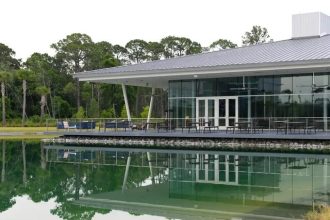In a major push for health sovereignty in Nigeria, the Federal Government and the European Union signed three key agreements on Thursday at the Nigeria-EU Health Investment Forum.
The agreements, which are part of the EU’s Global Gateway Initiative, aim to supercharge local pharmaceutical manufacturing, improve access to vaccines and strengthen reproductive health across West Africa.
The Vice President, Kashim Shettima, who was represented by the Senior Special Assistant to the President on Health, Office of the Vice President, Dr Uju Rochas, described the signing of the agreements as a “turning point.”
“Our message is clear: Nigeria is open for health investment, innovation and impact.
“The President has declared that Nigeria’s health transformation will not be driven by aid and dependency alone, but by the government to drive ownership, accountability and innovation: Made in Nigeria, for Nigerians and by Nigerians.”
The EU Ambassador to Nigeria, Gautier Mignot, hailed Nigeria’s “paradigm shift from aid to partnerships.”
Mignot noted that the EU will continue to “Support Nigeria through our Global Gateway Initiatives, particularly reproductive health and maternal and child health.”
The three agreements signed include the ELM-N, which is the Enabling Local Manufacturing of Health, Immunisation and Nutrition Commodities in Nigeria agreement; the Quality Uplift for Advancing Local Industry in Medicine Standards, known as QUALIMEDS and the Strengthening Reproductive Health and Rights in West Africa Agreement.
The signing of the ELM-N agreement in particular, aligns with recent moves by the Federal Government to strengthen local pharmaceuticals in Nigeria.
The Federal Government, under President Bola Tinubu, launched the Presidential Initiative for Unlocking the Healthcare Value Chain in 2023, with an ambitious goal which is to producing 70% of essential medicines domestically by 2030.
The PVAC, according to the presidency, has been spearheading reforms, some of which include a June 2024 Executive Order which announced the waiving of tariffs and Value Added Tax on pharmaceutical machinery and raw materials to slash production costs.









